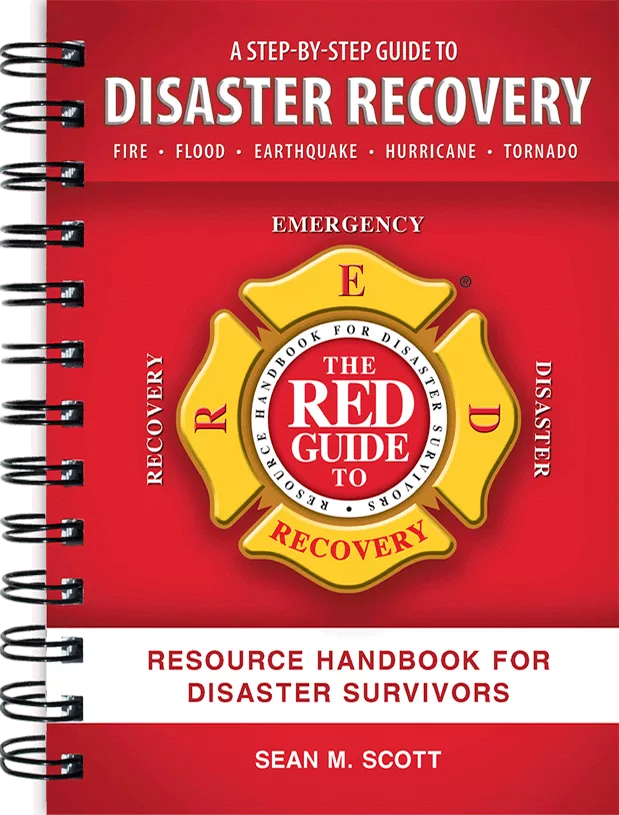Training to Triumph: Mastering Mold Remediation for a Healthier Environment
Essential Techniques and Skills for Effective Mold Remediation to Ensure Safe and Healthy Spaces
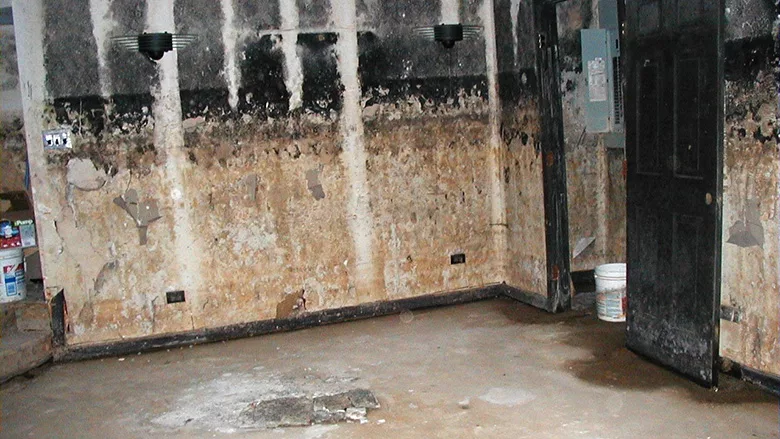
All images courtesy of Rachel Adams
Hurricanes thrashed the US this year leading to more than 200 deaths and causing over $500 billion in damage and economic loss as communities faced flooding and destructive winds from the storms. The nearly half-billion-dollar total makes the 2024 season one of the most costly on record, according to AccuWeather.
AccuWeather said Helene was responsible for about half of the $500 billion preliminary estimate, with a price tag of between $225 and $250 billion. Most of the damage was not insured.
This season ranks in the top five for the most hurricanes to develop and only three previous seasons since 1850 experienced more hurricane landfalls in a single year. Last year ranked fourth for named storms.
Many homes and commercial structures left in the wake of the recent storm season that incurred flooding and water damage will require restorative drying and by the time mitigation procedures are initiated, a vast majority of these buildings will have mold which creates additional challenges.
Training is crucial for mold remediation because it equips individuals with the necessary knowledge and skills to safely and effectively identify, assess and remove mold contamination, minimizing health risks associated with exposure while ensuring proper remediation techniques are used, which is critical due to the potential health hazards of mold and the need to comply with industry standards and regulations.
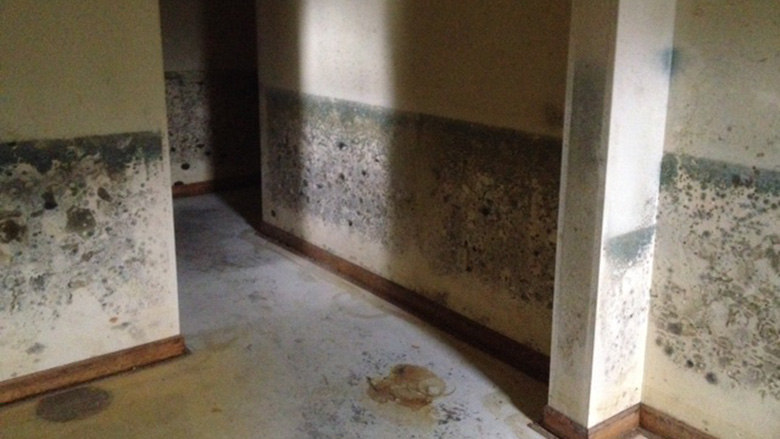
Key reasons why training is important for mold remediation:
-
Occupant and Technician Health:
Mold exposure can trigger allergic reactions, respiratory issues and other health problems, so proper training ensures workers understand how to handle mold safely and protect themselves and others from potential health risks. -
Accurate Assessment:
Training allows individuals to correctly assess the extent of contamination and determine the appropriate remediation methods based on the situation. -
Containment and Removal Techniques:
Mold remediation involves specific protocols to manage mold contamination and avoid cross-contamination, which can only be effectively accomplished with proper training in containment techniques, the use of personal protective equipment (PPE) and cleaning procedures. -
Compliance with Regulations and Licensing:
Several states have regulations regarding mold remediation and assessment and training ensures that professionals are aware of the required standards and procedures to comply with local laws. -
Minimizing property damage:
By understanding the proper cleaning techniques for mold removal, trained professionals can minimize damage to structural materials while effectively addressing the mold problem. -
Professional Credibility:
Achieving certification through training signifies a dedication to quality and expertise, fostering client trust and ensuring they receive dependable mold remediation services.
The Crucial Role of Mold Remediation Training
Following the 2024 Atlantic hurricane season, which has been recorded as one of the most devastating in history, the significance of mold remediation training is paramount. With damages estimated to surpass $232 billion and a tragic loss of life, communities throughout the United States are grappling with the lasting effects of flooding and water damage. Mold growth frequently arises from these disasters, highlighting the necessity for effective remediation training for professionals in this field.
What should mold remediation training cover?
There are training courses offered throughout North America which include in-person, live streaming and on-demand formats. When searching for a course that can deliver the best training for you and your technicians, ensure the following topics are included in the course curriculum.
- Overall understanding of indicator molds associated with water damage
- Health effects of mold exposure
- Inspection and assessment techniques
- Containment procedures and negative air pressure systems
- Proper use of chemical processes to aid in source removal
- Management of airflow
- Personal protective equipment (PPE) and safety
- Removal and cleaning methods
- Moisture control strategies
- Regulatory compliance and reporting requirements
Also evaluate if the course is consistent with the principles of mold remediation as outlined in the current edition of the ANSI/IICRC S520, Standard for Professional Mold Remediation which is internationally recognized as the industry standard.
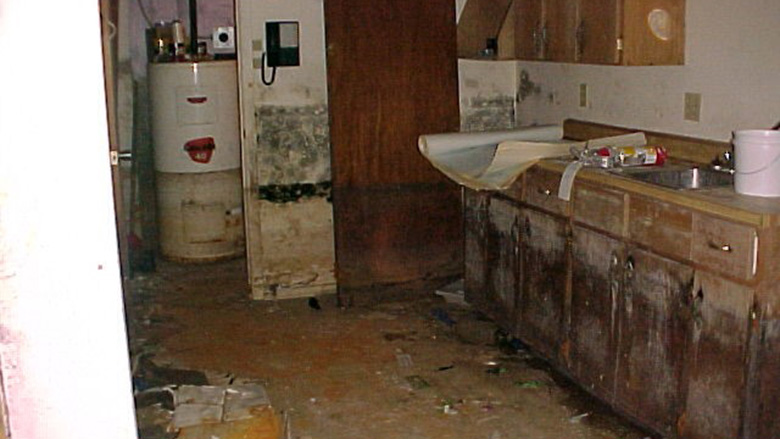
Regulatory Landscape
Many states require contractors involved in mold remediation and assessment services to fulfill specific educational, field experience and insurance criteria in order to obtain their licenses.
Let’s look at the states that currently have mold remediation licensing / certification and training requirements.
District of Columbia
All individuals interested in obtaining a professional mold assessment or remediation license must apply to DOEE. To be eligible, individuals must have taken a DOEE-approved examination, within the previous two years. Additionally, applicants must be at least eighteen years old, and meet at least one of the following education and experience requirements:
- At least a two-year associate’s degree or equivalent, with at least thirty semester hours in microbiology, engineering, architecture, industrial hygiene, occupational safety, or a related field of science from an accredited institution, and a minimum of one year of documented relevant field experience;
OR - A certified industrial hygienist, a professional engineer, a professional registered sanitarian, a certified safety professional, or a registered architect, with at least six months of documented relevant field experience;
OR - A high school diploma or the equivalent, and a minimum of three years of documented relevant field experience.
The fee for an application for either a District of Columbia mold assessment or remediation license is $300. The fee for renewal of licensure is $105. The term of each license is two years.
In Washington, D.C., accepted exams for obtaining a mold remediation license include the Mold Remediation Specialist (MRS) exam from the IICRC, as well as certifications from the National Organization of Remediators and Mold Inspectors (NORMI) and the American Council for Accredited Certification (ACAC), such as the Certified Mold Remediator (CMR) and Certified Mold Inspector (CMI) designations. Applicants should verify with the D.C. Department of Energy and Environment for any updates or specific requirements regarding accepted exams.
https://doee.dc.gov/service/mold-professional-licensing
Florida
-
EDUCATION/EXPERIENCE: A copy of a transcript is required demonstrating an Associate of Arts degree or higher in microbiology, engineering, architecture, industrial hygiene or occupational safety or related field of science from an accredited institution. The applicant must also demonstrate a minimum of 1 year of documented field experience in a field related to mold remediation;
or
a high school diploma and 4 years of documented field experience in a field related to mold remediation. This is not a complete listing of educational and experience requirements. Please see the application instructions page for complete information.
- FINGERPRINTS: An applicant must have a background check as part of the licensing process. You must submit your fingerprints using a Livescan Service Provider registered with FDLE immediately after submitting your application for licensure. It may take up to five days for your fingerprint results to be received by the Department after they are submitted to the Florida Department of Law enforcement (FDLE). Please note that the Florida Department of Law Enforcement requires that an application for licensure should precede the submission of your fingerprints. To learn more about fingerprinting, please visit our Fingerprinting webpage.
- INSURANCE: Applicants for a Mold Remediator license are required to attest that they have obtained general liability insurance in the amount of no less than $1 million dollars as determined by statute.
- FEE: Pay the required fee as provided in the application. If applying online, you can pay with a credit card or electronic check. If mailing your application, please include a check payable to the Department of Business and Professional Regulation. Military veterans, their spouses and Florida National Guard members may be eligible for a fee waiver, fee reimbursement, and/or fee discount. Please visit our DBPR Military Services page for more information.
Individuals seeking licensure as a Mold Remediator must take and pass a department approved exam for mold remediation. One of the exams approved for licensure as a Mold Remediator is the IICRC Mold Remediation Specialist (MRS) exam.
In addition to the IICRC Mold Remediation Specialist (MRS) exam, Florida recognizes other approved exams for mold remediation licensing, such as the National Organization of Remediators and Mold Inspectors (NORMI) certification exams and the American Council for Accredited Certification (ACAC) exams, including the Certified Mold Remediator (CMR) and Certified Mold Inspector (CMI) designations. It's important for candidates to check the Florida Department of Business and Professional Regulation (DBPR) for the most current information on approved exams.
https://www.myfloridalicense.com/CheckListDetail.asp?SID=&xactCode=1030&clientCode=0702&XACT_DEFN_ID=13112
Louisianna
Louisiana State Licensing Board for Contractors. Please note that Mold Remediators must have at least 24 hours of Mold Remediation-related training. If course instruction does not meet these minimums, you must add additional courses to meet the minimum.
https://lslbc.louisiana.gov/lslbc-online-application/
New Hampshire
As of January 1, 2016, New Hampshire mandates that individuals who provide residential "mold assessment" services for payment must hold a valid national "third-party certification" in mold assessment. However, this law exempts any professional hired by a homeowner whose primary contracted work is not mold assessment from the certification requirement. "Mold assessment" is defined to include (1) an inspection, investigation, or survey of a dwelling or other structure to inform the owner about the presence, identification, or evaluation of mold; (2) the development of a mold remediation specification or protocol; or (3) the collection of a mold sample for analysis. A "third-party certification" is one that is recognized by a national nonprofit organization whose programs are accredited by bodies such as the American National Standards Institute (ANSI), the Council of Engineering and Scientific Specialty Boards (CESB), the National Commission for Certifying Agencies (NCCA), or any other accrediting organization that complies with the International Organization for Standardization (ISO) standards for accreditation.
https://www.oplc.nh.gov/mold-assessment-certification
New York
New York has a mold licensing program that requires specific training that is only offered through the NY Department of Labor.
Mold Assessor license - applicants must be at least eighteen (18) years old and successfully complete a Mold Assessor Training Course from a Department of Labor-approved training provider. Additionally, applicants are required to pay a non-refundable application fee of $150 to the New York State Department of Labor. Furthermore, they must provide proof of Workers' Compensation coverage (if applicable), Disability insurance coverage (if applicable) and Liability insurance coverage of at least $50,000, which covers claims arising from licensed activities and operations in accordance with New York State Labor Law Article 32.
Mold Remediation Contractor - applicants must be at least eighteen (18) years old and successfully complete a Mold Remediation Contractor Training Course from a Department of Labor-approved training provider. Additionally, applicants are required to pay a non-refundable application fee of $500 to the New York State Department of Labor. Moreover, they must submit proof of Workers' Compensation coverage (if applicable), Disability insurance coverage (if applicable) and Liability insurance coverage of at least $50,000, which provides coverage for claims arising from licensed activities and operations in accordance with New York State Labor Law Article 32.
Mold Abatement Worker Supervisor - applicants must be at least eighteen (18) years old, satisfactorily complete a Mold Remediation Contractor Training Course from a Department of Labor-approved training provider and pay the required application fee of $50 to the New York State Department of Labor.
Mold Abatement Worker - applicants must be at least eighteen (18) years old, successfully complete a Mold Abatement Worker Training Course from a Department of Labor-approved training provider and pay the same application fee of $50 to the NYS DOL.
https://dol.ny.gov/mold-program
Tennessee
To work on mold remediation projects in Tennessee, you must obtain a license from the Tennessee Department of Commerce & Insurance. This licensing process involves meeting several criteria, including passing a Business and Law exam, undergoing a criminal background check and paying a licensing fee. Additionally, you are required to maintain a specified amount of liability insurance, fulfill continuing education unit (CEU) standards and provide proof of your experience and equipment, along with relevant financial information.
https://www.tn.gov/commerce/regboards/contractors/consumer/other.html
Texas
Texas has comprehensive mold remediation licensing regulations but does not mention accredited industry standards. The state is currently in the process of revising the existing mold remediation regulations. The IICRC has submitted comments encouraging references to the ANSI/IICRC S520 and is serving on a working group to advise on regulation revisions.
To obtain a Mold Assessor license in Texas, applicants must meet several requirements. They must be at least eighteen (18) years old and successfully complete a Texas Department of Licensing and Regulation (TDLR) approved Mold Assessor training course. Additionally, applicants must pass the mold assessor examination and submit a completed application along with the required fee. Finally, proof of liability insurance is also required to ensure coverage for mold-related activities.
To obtain a Mold Remediation Contractor license in Texas, applicants must fulfill several requirements. They must be at least eighteen (18) years old and have completed a Mold Remediation Contractor training course approved by the Texas Department of Licensing and Regulation (TDLR). Additionally, applicants are required to pass the mold remediation contractor examination and submit a completed application along with the necessary fee. Proof of liability insurance is also required to ensure coverage for mold remediation activities. All owners with a10% or more ownership of this business must be listed on the license application form.
https://www.tdlr.texas.gov/mld/
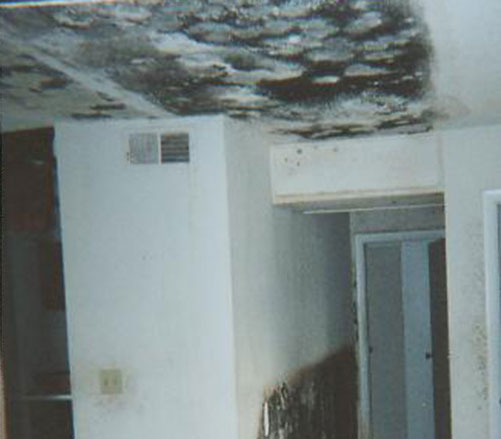
The following states do not require a license to perform mold remediation services but do provide some guidance and resources.
Alabama
Alabama references basic EPA mold and moisture guidelines but does not provide any other guidance or regulations around mold or mold remediation in the state.
https://www.alabamapublichealth.gov/iaq/index.html
Alaska
The Municipality of Anchorage acknowledges the presence of significant visible mold in hotels and other visitor accommodations as a public nuisance. Although the Alaska Department of Health and Human Services offers some mold-related resources on its website, the state currently lacks any regulations for mold remediation.
https://www.commerce.alaska.gov/web/cbpl/professionallicensing/constructioncontractors.aspx#:~:text=The%20Division%20of%20Corporations%2C%20Business,people%20who%20violate%20licensing%20laws.
Arizona
Arizona requires mold remediation contractors to undergo training from an accredited institution and fulfill ongoing education requirements. Additionally, they may have to obtain a license from the Arizona Corporation Commission. While Arizona offers online FAQs regarding mold, it does not specify any particular regulations concerning mold remediation practices.
https://www.azleg.gov/legtext/50leg/1r/bills/hb2388p.htm
Arkansas
In 2012, the Mold Investigation Advisory Board in Arkansas advised against the establishment of legislation or regulations concerning mold remediation. While the state offers some mold-related resources on its website, the state currently lacks any regulations for mold remediation.
https://healthy.arkansas.gov/programs-services/public-health-safety/is-my-home-safe/mold-hazards/
California
California provides comprehensive guidance on mold through its website, outlining the dangers associated with mold and offering solutions for addressing mold issues. The state directs residents to organizations such as the IICRC, which certifies mold remediators. Although California does not have specific regulations for mold remediation, mold is recognized in the California Residential Building Code as a condition that can render a home substandard.
Colorado
Colorado has minimal information regarding mold available online and does not have existing mold remediation regulations.
https://cdphe.colorado.gov/defining-an-indoor-air-quality-problem
Connecticut
Connecticut offers comprehensive mold abatement guidance on its website, which includes references to documents such as the ANSI/IICRC S520. However, the state currently does not have specific mold remediation regulations. Legislation known as SB 423 aims to require the Office of Policy and Management to establish an indoor air quality assessment program. This bill would address indoor air quality concerns, encompassing overall health factors in school facilities, including air quality, mold and other potentially harmful toxins.
https://portal.ct.gov/-/media/dph/ehdw/ct-guidelines-for-mold-abatement-contractors_rev080814.pdf
Delaware
Delaware provides basic guidance about mold online but does not have existing mold remediation regulations.
https://www.dhss.delaware.gov/dph/hsp/i-moldinyourhome.html
Georgia
Georgia regulates mold in tourist accommodations but not in other dwellings. The state does not have mold remediation regulations.
https://dph.georgia.gov/environmental-health/indoor-air-quality
Hawai’i
Hawai'i provides a list of IAQ service providers but notes that the list is for guidance only. They also have a handful of mold guidance documents on their site. Hawai'i does not have mold remediation regulations.
https://health.hawaii.gov/irhb/files/2013/06/How-to-Remove-Mold-Revised-10-2004.pdf
Idaho
Idaho provides some information on mold online but does not have mold remediation regulations.
https://healthandwelfare.idaho.gov/health-wellness/environmental-health/mold
Illinois
Illinois requires third-party certification and registration for mold remediation professionals, effective January 1, 2025. This is due to the Mold Remediation Registration Act (SB 1087), which was passed by the Illinois General Assembly in August. 2023.
https://www.ilga.gov/legislation/ilcs/ilcs3.asp?ActID=2931&ChapterID=35
Indiana
Indiana provides links to external sources regarding mold, but the state does not note any mold remediation regulations.
https://www.in.gov/localhealth/harrisoncounty/files/Brochure_Mold.pdf
Iowa
Iowa provides minimal mold guidance online and does not have any mold remediation regulations.
https://publications.iowa.gov/43596/1/mold_fact_sheet.pdf
Kansas
Provides the link to the EPA's Mold Resources page.
https://moldkansascity.com/blog/epa-guidelines-for-mold-abatement/#:~:text=CLEANING%20%E2%80%93%20Cover%20surfaces%20in%20work,of%20a%20specialty%20HEPA%20vacuum.
Kentucky
The Attorney General has indicated that the mold remediation regulation 40 KAR 2:330 is founded on principles established by the Institute of Inspection, Cleaning and Restoration Certification (IICRC), specifically referencing the standard ANSI/IICRC S520.
“A REPUTABLE MOLD REMEDIATION COMPANY SHOULD HAVE TRAINING: There are no state administrative regulations providing for certification of mold remediation companies, so choose your mold remediation company carefully. Ask your mold remediation company for information about the training, education, and experience of its owners and employees to perform mold remediation in a professional and workmanlike manner. Training, Education, and Experience — A mold remediation company shall ensure that its principals and employees have training, education, and experience to perform the tasks and to use equipment, tools, and materials that will be used on the project or are required by this regulation. The training shall at least include safety and health, engineering controls, containment methods, and work practices.”
https://www.ag.ky.gov/Resources/Consumer-Resources/Consumers/home/Pages/mold-remediation.aspx
Maine
Maine provides a fact sheet on mold but does not have specific mold remediation regulations. To use chemicals to clean, control, or kill mold in Maine, you must be a licensed Maine pesticides applicator. Contractors can get a license by passing two written exams, including a Core Exam and a Commodity Exam.
https://www.maine.gov/dacf/php/pesticides/applicators/certification/index.shtml
Maryland
Chapter 537 of 2008 established the licensing of companies and firms that offer mold remediation services under the Maryland Home Improvement Commission (MHIC), which operates within the Department of Labor, Licensing and Regulation (DLLR) (See Appendix 1). The statute partially defines mold remediation as "the removal, cleaning, sanitizing, demolition, or other treatment of mold or mold-contaminated materials." However, it does not encompass mold assessments to identify the presence of mold or the repair of structures damaged by mold after remediation. The aim of Chapter 537 is to safeguard consumers from companies that are not properly qualified to perform mold remediation services. Specifically, it mandates that firms providing these services (1) carry liability insurance of at least $1 million and (2) employ only individuals certified by an accredited body to perform mold remediation. The legislation initially required all companies offering mold remediation services to be licensed by June 1, 2010. However, July 1, 2019, this subtitle was never put into effect due to a lack of funding for its implementation, therefore, any license to do mold remediation was also terminated.
https://dls.maryland.gov/pubs/prod/SunsetRevLab/MoldRemSvcs/2016-Mold-Remediation.pdf
Massachusetts
Massachusetts provides fairly extensive mold resources but does not have specific mold remediation regulations.
https://www.mass.gov/doc/mold-cleanup-repairs-and-excessive-moisture-control-a-step-by-step-guide-for-homeowners/download
Michigan
Michigan's Department of Health and Human Services provides a resource page that includes links to relevant CDC and EPA articles but does not have specific mold remediation rules.
https://www.michigan.gov/mdhhs/safety-injury-prev/environmental-health/topics/mold
Minnesota
The MN Department of Health has a resource page that includes links to relevant sources created by the EPA and the CDC.
https://www.health.state.mn.us/communities/environment/air/mold/index.html#:~:text=There%20are%20also%20mold%20remediation,certifies%20mold%20investigators%20or%20remediators.
Mississippi
The Mississippi Department of Health has a Q&A section and links to a CDC page.
https://msdh.ms.gov/page/43,0,230,331.html
Missouri
The state provides some resources on mold but does not have specific mold remediation rules.
https://health.mo.gov/living/environment/indoorair/mold.php
Montana
The Montana Department of Public Health and Human Services provides a resource page with EPA and CDC links.
https://dphhs.mt.gov/publichealth/cdepi/diseases/mold
Nebraska
The state provides some resource documents but does not have specific mold remediation regulations.
https://dhhs.ne.gov/Asbestos%20Documents/moldaffect.pdf
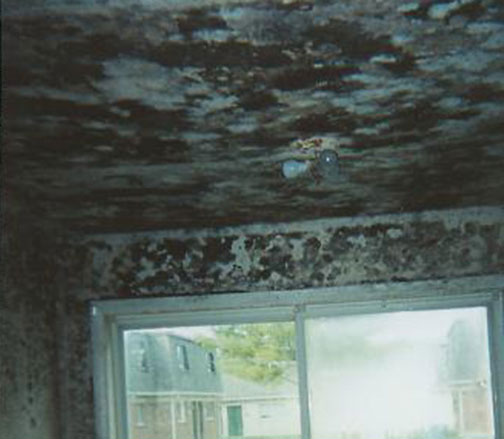
Nevada
The Nevada Division of Public and Behavioral Health has a resource page with relevant EPA and CDC links. Nevada does not require a license to perform mold remediation work that is under $1,000. However, a state building license is required for work that is over $1,000.
https://dpbh.nv.gov/Reg/Trending_EHS/Trending_Health_Topics/#:~:text=The%20Nevada%20Division%20of%20Public,to%20keep%20your%20home%20safe.
New Jersey
New Jersey does not have a licensing program for individuals performing mold services. While the New Jersey Department of Health offers mold guidelines for residents, it does not establish specific mold regulations.
https://www.nj.gov/health/ceohs/environmental-occupational/mold/
New Mexico
New Mexico only has an informational page on its state department of health website.
https://www.nmhealth.org/about/erd/eheb/mp/
North Carolina
The Department of Health and Human Services has a resource page.
https://epi.dph.ncdhhs.gov/oee/mold/consultant.html
North Dakota
North Dakota provides a resource page. https://deq.nd.gov/WM/indoor/mold.aspx
Ohio
The state has created a resource page that offers valuable information about the dangers of mold. In response to these concerns, HB 251 was introduced, which mandates that sellers and landlords disclose their knowledge of mold. Additionally, it calls for the establishment of a public mold awareness campaign and requires the state to review mold remediation technology every five years.
https://odh.ohio.gov/know-our-programs/healthy-homes
Oklahoma
Oklahoma provides a resource page.
https://www.deq.ok.gov/air-quality-division/mold/
Oregon
The state has developed a resource page that provides important information regarding the dangers of mold. In addition, the city of Portland acknowledges certifying entities for mold sampling, testing, remediation and treatment, including the IICRC; however, it's important to note that this regulation is not enforced on a state-wide basis.
https://www.oregon.gov/ccb/Documents/HR%20policies%20and%20onboarding%20documents%20for%20Workday/Education%20News%20and%20Newsletters/Homeowner%20Tools%20%26%20Tips/21-1%20HO%20newsletter.pdf
Pennsylvania
While there are no federal or state mold remediation certifications, you are required to have a contractor’s license from the state to perform work. Currently, mold remediation falls under the “Home Improvement Contractor” title in both Pennsylvania and New Jersey.
https://www.pa.gov/agencies/dli/programs-services/labor-management-relations/bureau-of-occupational-and-industrial-safety/uniform-construction-code-home/contractor-licensing.html
Rhode Island
The state has a resource page that provides information about the dangers of mold.
https://health.ri.gov/publications/brochures/SomeFactsAboutMold.pdf
South Carolina
The state has created a resource page that provides essential information about the dangers of mold. Additionally, Bill 3127, passed during the 2019-2020 session, was a joint resolution that established the Mold Abatement and Remediation Study Committee. This committee was tasked with studying the impact of mold in public areas and identifying the most effective methods for remediating mold in those spaces.
South Dakota
A state license is not required to work in the state of South Dakota. However, many local jurisdictions may require restoration professionals to have a general contractor license. South Dakota does require restoration companies to adhere to a contractor's excise tax license. The state has a resource page that provides information about the dangers of mold. https://doh.sd.gov/diseases/mold/
Utah
The state has a resource page that provides information about the dangers of mold.
https://asthma.utah.gov/wp-content/uploads/moldresources.pdf
Vermont
The state has developed a resource page that offers crucial information about the dangers of mold. In line with addressing these concerns, H 463 proposes the creation of the Working Group to Address the Presence of Toxigenic Mold in Buildings. This group would be responsible for drafting a model plan to track the effects of mold, developing a mold awareness campaign, proposing training for town health officers, recommending continuing education and reviewing necessary changes to real estate disclosure practices.
https://www.healthvermont.gov/environment/healthy-homes/mold#:~:text=There%20are%20no%20federal%20or,of%20Agriculture%2C%20Food%20and%20Markets.
Virginia
In the Commonwealth of Virginia, contractors are not required to hold a license for mold inspections; however, those engaged in mold remediation must have certification from the Institute of Inspection, Cleaning and Restoration Certification. It is advisable for contractors to provide a list of referrals. According to a provision of the VRLT Act, landlords are obligated to remediate any mold disclosed at the time of initial move-in within five days and must conduct a re-inspection to confirm the absence of visible mold. Furthermore, HB 868 mandates that landlords include terms in every rental agreement that outline their responsibility to maintain a fit premises, which encompasses mold management. To assist the public, the state has established a resource page that details the dangers of mold. Additionally, HB 1824 requires property disclosure forms to advise potential buyers to obtain a mold inspection that adheres to EPA guidelines.
https://www.vdh.virginia.gov/environmental-health/public-health-toxicology/mold/
Washington
The state has a resource page that provides information about the dangers of mold
https://doh.wa.gov/community-and-environment/air-quality/indoor-air/hiring-contractor#:~:text=There%20are%20no%20specific%20certification,any%20specialized%20training%20or%20credentials.
West Virginia
The state has no resource page that provides information about the dangers of mold.
https://oehs.wvdhhr.org/rtia/search/?q=mold
Wisconsin
The state has a resource page that provides information about the dangers of mold. Although there are no licensing requirements, you can email the Department of Health Services (DHS) with information about your company and credentials. The DHS will then include your company on their lists of mold remediation contractors. The DHS lists of mold remediation contractors and IAQ consultants are a resource for people looking for these services. However, the lists do not constitute an endorsement of any company
https://www.dhs.wisconsin.gov/mold/index.htm
Wyoming
The state has no resource page that provides information about the dangers of mold.
Conclusion
As the repercussions of the 2024 hurricane season continue to develop, the significance of mold remediation training becomes increasingly clear. Adequate training not only safeguards public health and safety but also ensures adherence to regulatory standards and reduces property damage. For professionals in the industry, investing in mold remediation training is not merely a best practice; it is essential for protecting communities from the long-term impacts of mold contamination.
Looking for a reprint of this article?
From high-res PDFs to custom plaques, order your copy today!







